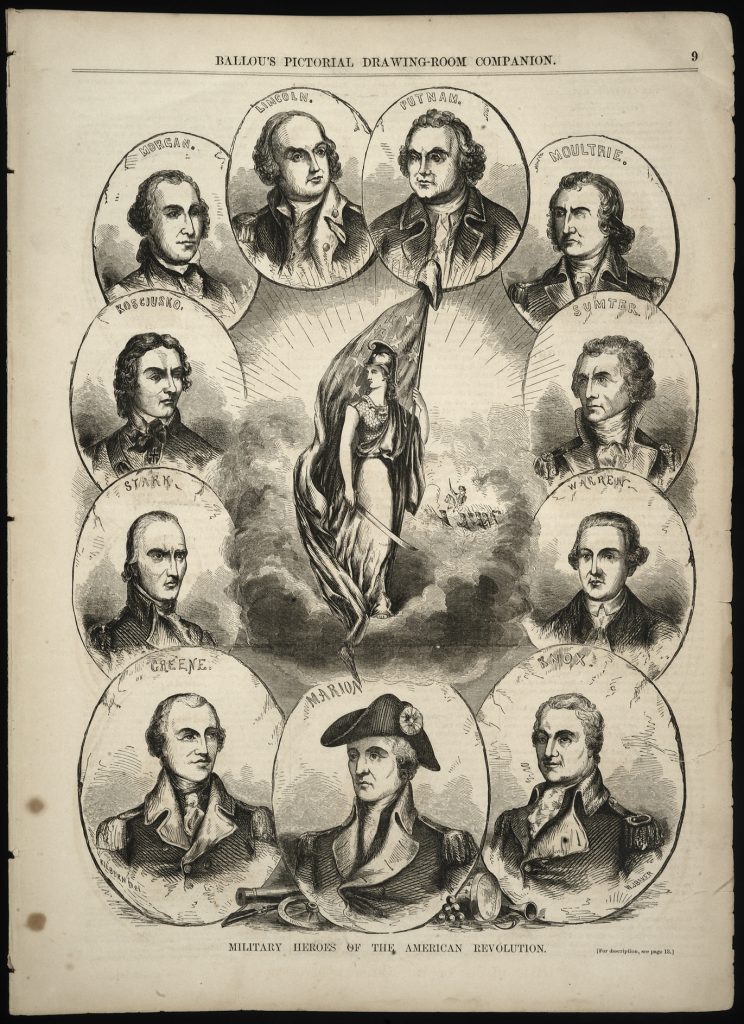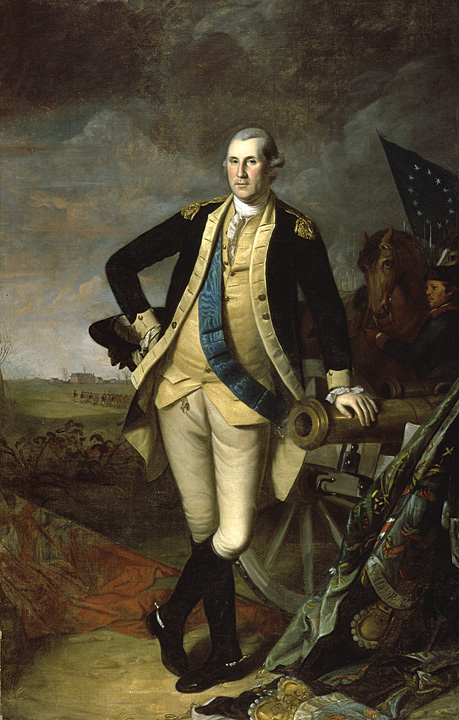Elizabeth Cahill, Wachusett Regional School District, Holden, Massachusetts
DESIGN LEVEL: Middle School-High School
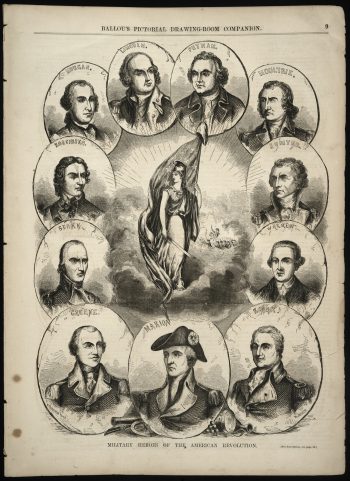
Overview
This lesson looks at artwork commemorating the American Revolution and allows students to explore choices artists make that shape how events are remembered by future generations.
Objectives
Students will:
- analyze artwork that commemorates the American Revolution and develop themes from that artwork; and
- research a person represented in artwork and analyze how that person connects to the theme the artist is trying to present to the public.
Materials
- Military Heroes of the American Revolution, William J. Baker, engraver; after Lawrence Kilburn, artist, Ballou’s Pictorial Drawing-Room Companion, ca. 1850, The Society of the Cincinnati, Gift of Benjamin Lincoln, 1986
- George III Copper-Plate Design for a Historical Panel Handkerchief, Artist/Maker: B.B. Ellis (Engraver, active England ca. 1780), after Pierre Eugene Du Simitiere (Swiss, American, 1737-1784), Talwin & Foster (British, 1783-1790), United Kingdom: England: Middlesex, ca. 1785, U.S. Department of State, Diplomatic Reception Rooms
- George Washington at Princeton, Charles Willson Peale, 1779, Pennsylvania Academy of the Fine Arts
- Google Slides shared file
Recommended Time:
One or two 50-minute class periods.
Activity
Bell ringer: Students will analyze the Charles Willson Peale painting George Washington at Princeton and answer the following questions:
- What does Peale think about George Washington?
- What does Peale think about the result of the Battle of Princeton?
- How does Peale want Washington and the Battle of Princeton to be remembered?
- How do you know? (Cite evidence from the painting.)
Artwork analysis: Students will then analyze two commemorative pieces of art related to the American Revolution. Each of the pieces have the same construction of a middle symbolic image surrounded by smaller portraits of people tied to the theme. As a class, students will participate in discovering the theme of each piece with a variation on the strategy of “See, Think, Wonder” answering the following questions:
- What do you see?
- What do you think?
- What is the central theme?
- What would you title this piece?
Independent research and analysis: Students will then be assigned one of the small portraits that surround the central picture and will research who the person is, their connection to the American Revolution, and their connection to the central theme of the artwork. Students will also answer the question “How did the artist want the American Revolution to be remembered?”. This information will be inserted into a class Google presentation that all students can access.
Assessment
Formative: Students will participate in class discussion about the Peale painting and the central themes from the handkerchief and the image.
Summative: Students will research a person from the surrounding images from either the handkerchief or image and insert their information into a Google presentation doc.
Optional Extensions
- Have students create their own artwork that commemorates a “revolutionary” period from American history (i.e. the abolitionist movement, the womens’ rights movement, the civil rights movement) by creating a thematic image and include at least one person that should be included that connects to their chosen revolutionary theme.
- Have students research how veterans who were enlisted men in the Revolution were treated after the war and analyze how that experience compares to the memory of the revolution memorialized by artists.
Standards Addressed
2018 MASSACHUSETTS HISTORY AND SOCIAL SCIENCE FRAMEWORKS
United States History I Content Standards
Topic 1. Origins of the Revolution and the Constitution [USI.T1]
- Describe the key battles of the Revolution (e.g., Lexington, Concord, Bunker Hill, Trenton, Saratoga, Yorktown); the winter encampment at Valley Forge; and key leaders and participants of the Continental Army.
Standards for History and Social Science Practice, Pre-Kindergarten to Grade12:
- Develop focused questions or problem statements and conduct inquiries.
- Organize information and data from multiple primary and secondary sources.
- Analyze the purpose and point of view of each source; distinguish opinion from fact.
- Argue or explain conclusions, using valid reasoning and evidence.
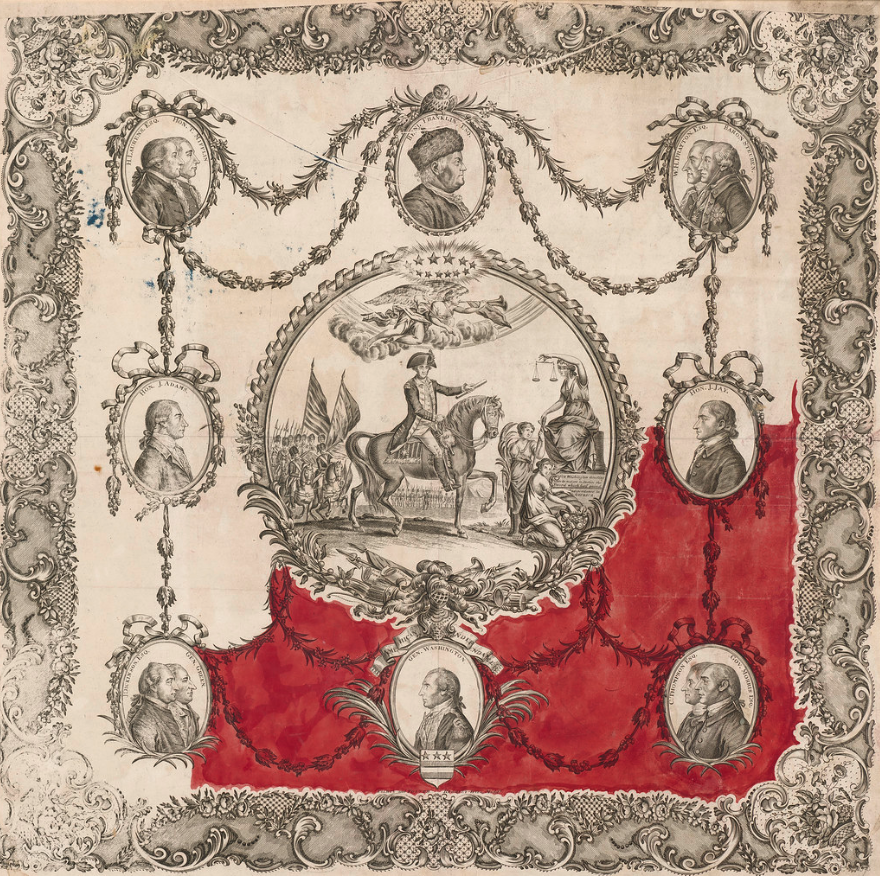
George III Copper-Plate Design for a Historical Panel Handkerchief
Artist/Maker: B.B. Ellis (Engraver, active England ca. 1780), after Pierre Eugene Du Simitiere (Swiss, American, 1737-1784)
Talwin & Foster (British, 1783-1790), United Kingdom: England: Middlesex, ca. 1785U.S. Department of State, Diplomatic Reception Rooms
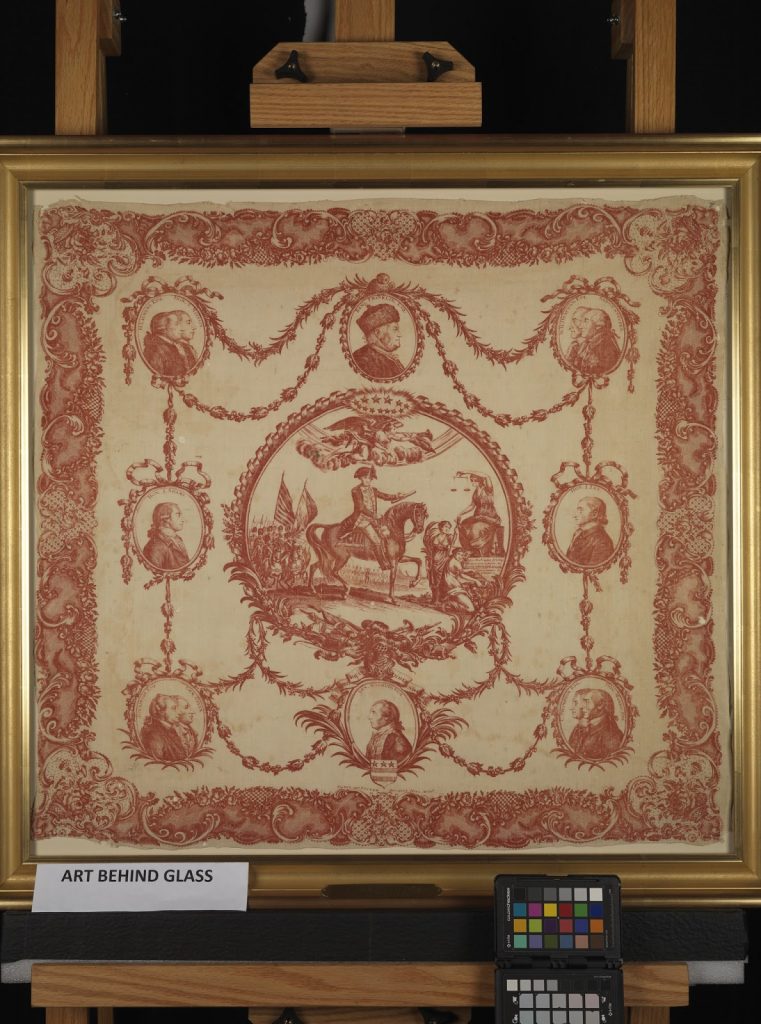
George III Copper-Plate Design for a Historical Panel Handkerchief
Artist/Maker: B.B. Ellis (Engraver, active England ca. 1780), after Pierre Eugene Du Simitiere (Swiss, American, 1737-1784)
Talwin & Foster (British, 1783-1790), United Kingdom: England: Middlesex, ca. 1785U.S. Department of State, Diplomatic Reception Rooms
